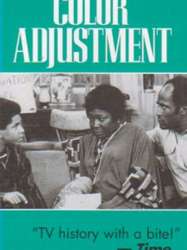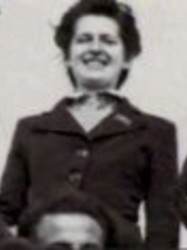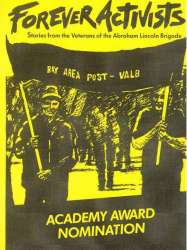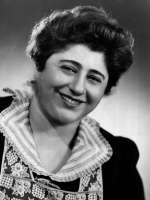Yoo Hoo Mrs Goldberg est un film de genre Documentaire réalisé par Aviva Kempner avec Gertrude Berg
Yoo Hoo Mrs Goldberg (2009)

Si vous aimez ce film, faites-le savoir !
- Infos
- Casting
- Infos techniques
- Photos
- Vidéos
- Passages TV
- Citations
- Personnages
- Musique
- Récompenses
Réalisé par Aviva Kempner
Genres Documentaire
Themes Religion, Documentaire sur une personnalité, Documentaire sur la religion, Politique, Religion juive
Note73%










Yoo-Hoo, Mrs. Goldberg is a 2009 documentary film on the broadcast career of Gertrude Berg and her radio and television serials, The Goldbergs. Aviva Kempner directed the film, interviewing family members of Berg, cast members of the Goldbergs and historians of radio and television. She also includes interview statements by non-celebrities, and celebrities, including All Things Considered anchor Susan Stamberg, Supreme Court Justice Ruth Bader Ginsburg, television sitcom producer Norman Lear and Mary Tyler Moore Show actor Ed Asner.
The film follows Berg's early years of marriage, her short period in New Orleans, her move to New York City, to her work in the radio and television renditions of The Goldbergs. The film devotes attention to the role of The Goldbergs in helping to present a congenial image of a striving Jewish family to the broader American public, and the tremendous popularity that the radio and television shows experienced. Stamberg deems Berg, "the Oprah of her day."
Yoo-Hoo, Mrs. Goldberg addresses developments contemporaneous with the years of The Goldbergs, Kristallnacht, the American Nazi German-American Bund and right-wing radio lecturer Father Coughlin. It also deals with Berg's struggle against the McCarthy Era blacklisters and the influence of Red Channels. The film ends with the end of the television program and Berg's post-Goldbergs professional career.
In 2009, the film won the San Francisco Jewish Film Festival Freedom of Expression Award.
Acteurs
Commentaires
Postez un commentaire :
Suggestions de films similaires à Yoo Hoo Mrs Goldberg
Il y a 6 films ayant les mêmes acteurs, 1 films avec le même réalisateur, 8961 ayant les mêmes genres cinématographiques, 11986 films qui ont les mêmes thèmes (dont 127 films qui ont les mêmes 5 thèmes que Yoo Hoo Mrs Goldberg), pour avoir au final 70 suggestions de films similaires.Si vous avez aimé Yoo Hoo Mrs Goldberg, vous aimerez sûrement les films similaires suivants :

Réalisé par Aviva Kempner
Origine Etats-Unis
Genres Documentaire
Thèmes Religion, Sport, Baseball, Documentaire sur le sport, Documentaire sur la religion, Religion juive
Acteurs Walter Matthau
Note75%





 , 39minutes
, 39minutesOrigine Etats-Unis
Genres Documentaire
Thèmes Film sur un écrivain, Documentaire sur la guerre, Documentaire historique, Documentaire sur une personnalité, Politique, Documentaire sur la Seconde Guerre mondiale
Acteurs Robert Altman, Norman Corwin, Walter Cronkite, Norman Lear
Note69%






Color Adjustment (1992)
, 1h26Réalisé par Marlon Riggs
Origine Etats-Unis
Genres Documentaire
Thèmes Le racisme, La télévision, Documentaire sur la discrimination, Documentaire sur le droit, Documentaire sur une personnalité
Acteurs Norman Lear, Tim Reid, Steven Bochco, Diahann Carroll, Ruby Dee, Hal Kanter
Note73%





 , 1h4
, 1h4Réalisé par Matej Mináč
Genres Documentaire, Historique
Thèmes Le racisme, Religion, Documentaire sur la discrimination, Documentaire sur le droit, Documentaire sur la guerre, Documentaire historique, Documentaire sur une personnalité, Documentaire sur la religion, Politique, Religion juive, Documentaire sur la Seconde Guerre mondiale
Acteurs Karel Reisz
Note81%





Partez à la rencontre de Nicholas Winton, véritable héros d'avant-guerre. Jamais considéré comme tel, cet homme a pourtant sauvé 669 enfants à la veille de la Seconde Guerre mondiale. Dans la capitale tchécoslovaque, alors qu´il se préparait pour des vacances au ski, le jeune Nicholas Winton va organiser une extraordinaire opération de sauvetage d'enfants juifs menacés par les nazis.
 , 1h
, 1hGenres Documentaire
Thèmes Afrique post-coloniale, Religion, Le terrorisme, Documentaire sur le droit, Documentaire sur la guerre, Documentaire historique, Documentaire sur une personnalité, Documentaire sur la politique, Documentaire sur la religion, Documentaire sur le terrorisme, Politique, Religion juive

Soeurs en résistance (2000)
, 1hOrigine Etats-Unis
Genres Biographie, Documentaire
Thèmes Le racisme, Religion, Documentaire sur la discrimination, Documentaire sur le droit, Documentaire sur la guerre, Documentaire historique, Documentaire sur une personnalité, Documentaire sur la religion, Politique, Religion juive, Documentaire sur la Seconde Guerre mondiale
Acteurs Kate Mulgrew
Ce film est l'histoire de quatre femmes exceptionnelles, résistantes, prisonnières, idéalistes qui à la fin de leurs adolescences risquèrent leurs vies pour combattre l'occupant nazi. Ni juives, ni communistes, elles rejoignirent la résistance alors qu'elles auraient pu tranquillement vivre en sécurité. Dans les deux ans qui suivirent, elles furent arrêtées par la Gestapo et déportées à Buchenwald. Aujourd'hui elles sont devenues des leaders sociaux ou intellectuels.
 , 1h
, 1hOrigine Etats-Unis
Genres Documentaire
Thèmes Religion, Documentaire sur la guerre, Documentaire historique, Documentaire sur une personnalité, Documentaire sur la religion, Documentaire sur la santé, Politique, Religion juive
Note58%






Timbrels and Torahs (2000)
, 36minutesOrigine Etats-Unis
Genres Documentaire
Thèmes Féminisme, Religion, Documentaire sur une personnalité, Documentaire sur la politique, Documentaire sur la religion, Politique, Religion juive

Death in Gaza (2004)
, 1h20Réalisé par James Miller
Genres Documentaire
Thèmes Afrique post-coloniale, Religion, Documentaire sur le droit, Documentaire sur la guerre, Documentaire historique, Documentaire sur une personnalité, Documentaire sur la politique, Documentaire sur la religion, Politique, Religion juive
Acteurs James Miller, Saira Shah
Note79%






Origine Etats-Unis
Genres Documentaire
Thèmes Le racisme, Religion, Documentaire sur la discrimination, Documentaire sur le droit, Documentaire sur la guerre, Documentaire historique, Documentaire sur une personnalité, Documentaire sur la religion, Politique, Religion juive, Documentaire sur la Seconde Guerre mondiale
Note66%





 Connexion
Connexion


